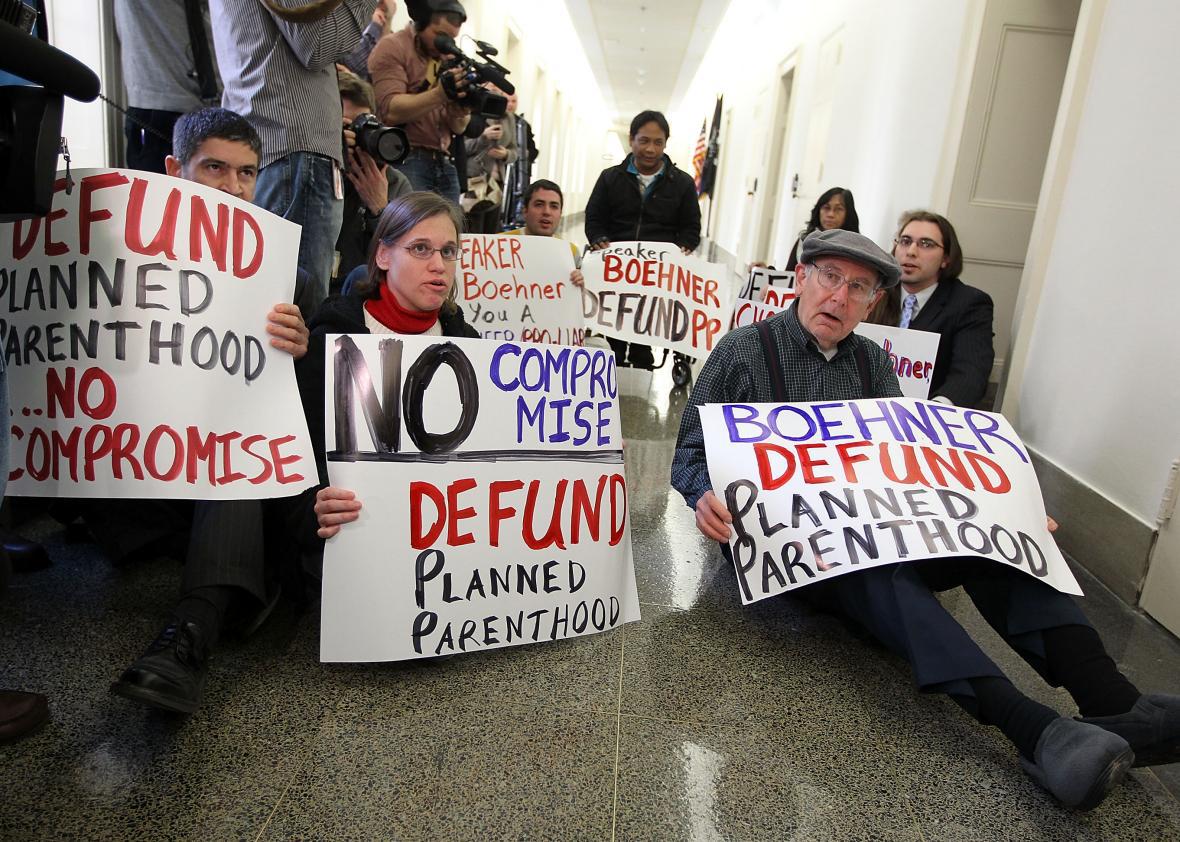The Congressional Budget Office released its highly anticipated analysis of the GOP’s proposed health-care plan on Monday, and Republicans are scrambling to avoid talking about the agency’s sobering projections of the bill’s impact. The American Health Care Act, also known as Trumpcare, could cause 24 million Americans to lose their health insurance over a decade according to the report, though the White House itself says it’s more like 26 million. For some older Americans, insurance premiums would rise 750 percent in the next 10 years.
For women and low-income Americans who rely on Planned Parenthood for reproductive health care, Trumpcare would pose an imminent threat to access to contraception, STI treatment, and cervical and breast cancer screenings. The plan blocks Medicaid patients’ access to Planned Parenthood–affiliated clinics for one year, cutting off the more than $400 million the organization usually gets from providing care to these patients. CBO estimates that this would leave 15 percent of people in low-income communities and areas that are slim on health-care options without the ability to get birth control.
According to Planned Parenthood, 54 percent of its health centers are in “health professional shortage areas, rural or medically underserved areas,” where residents on Medicaid are unlikely to have many, if any, other options for their family-planning needs. When Medicaid-covered patients get barred from clinics that count them as a large proportion of their client base, those clinics might be forced to close, narrowing health-care options for patients not on Medicaid, too. Republicans have claimed that other health-care providers are ready to take on the reproductive health-care needs of patients that will lose their access to Planned Parenthood clinics if they’re “defunded” through Medicaid restrictions. But their lists of recommended health-care providers include dentists, optometrists, and elementary schools, and many of the all-around health-care centers don’t offer contraception for religious reasons.
CBO projects that all those people not getting health services would save the federal government $178 million on Medicaid expenses in 2017. But the barriers to contraception access would result in “several thousand” more births to women who weren’t able to get consistent birth control, according to CBO. This would increase federal Medicaid spending on maternity care, since Medicaid currently covers about 45 percent of all births in the country. Many of those children would continue to get care under Medicaid and need other government-funded services, increasing federal spending in other areas. Over the next decade, CBO estimates that direct Medicaid expenses on those several thousand extra births would reach $21 million in 2017 and $77 million over the next decade.
In 2015, when Republicans in Congress moved to permanently block Medicaid patients from getting care at Planned Parenthood, CBO estimated that, over a decade, the federal government would spend $520 million less on Medicaid, but it would spend $650 million more on the increase in unplanned births, making it a net $130 million expense. This effect is not hypothetical: When Texas booted Planned Parenthood from its family-planning funding program in 2013, it saw contraception use decrease and birth rates rise.
As the Washington Post reports, anti-abortion groups are supporting Trumpcare because they think an increase in unplanned births means a decrease in terminated pregnancies. That is exactly backward. The rise in unplanned births would come from women who want to prevent pregnancy but wouldn’t have access to the contraception that would give them control over their reproductive lives. Because of the Hyde Amendment, women already can’t get abortion coverage through Medicaid; they only use Medicaid funding for contraception and other reproductive health-care services. And when women don’t have access to contraception, they have more unplanned pregnancies, which means more abortions. It’s not hard to imagine a woman on Medicaid losing her birth-control coverage at Planned Parenthood, getting pregnant when she’s off contraception, and having to save up enough money to terminate the pregnancy that could have been prevented if she’d had contraception coverage. Forcing women into pregnancy and birth by taking away birth-control access is a cruel political maneuver, not a way to stop abortion.
